April Marks End of Rijeka 2020 European Capital Of Culture Program
April 2, 2021 - The Rijeka 2020 European Capital Of Culture program ends this month.
Due to the coronavirus outbreak that started just a month after the official inauguration, the title of European Capital of Culture for Rijeka was extended until April 2021.
The Croatian National Tourist Board reports that over 50 cultural and artistic events will be held in Rijeka during April, the month that represents a kind of finale of the European Capital of Culture program, which the audience will be able to attend under controlled conditions and with respect for epidemiological measures.
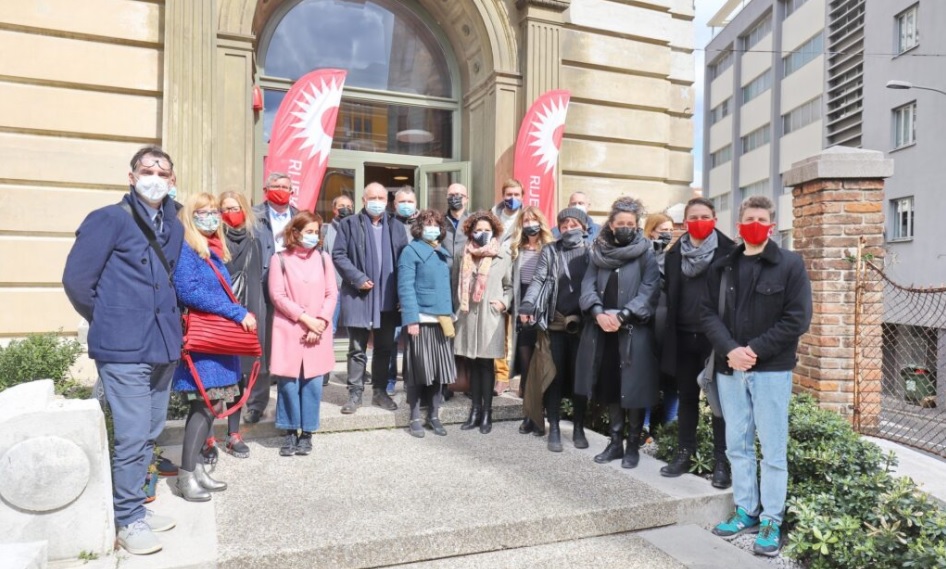
Credit: Rijeka2020.eu
Namely, for both the cities of Rijeka and Galway (Ireland), due to the outbreak of the COVID-19 pandemic and the inability to fully implement the originally planned program during 2020, the titles of European Capitals of Culture have been extended until the end of April 2021. Thus, the rich April program, which will officially mark the end of the European Capital of Culture project for 2020, will include plays, concerts, and programs in the theater. Themed guided walks around the city will be organized every weekend, as well as openings of permanent installations, exhibitions, programs in the newly opened Children's House, and similar events.
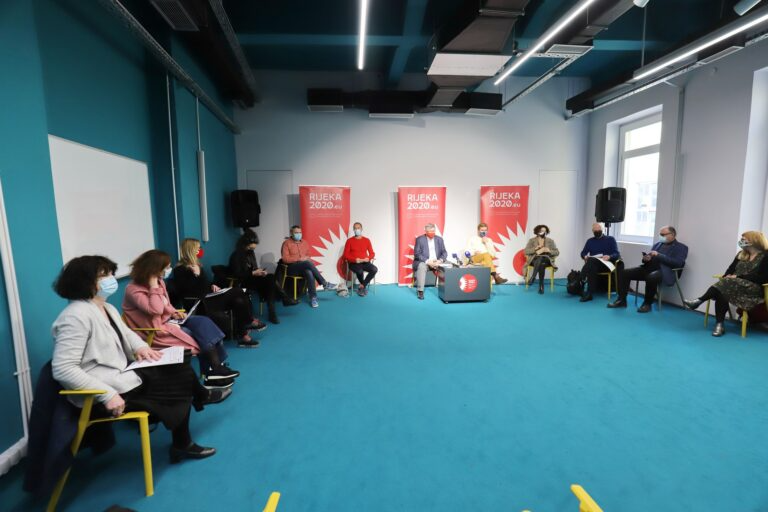
Credit: Rijeka2020.eu
Numerous events continue to take place after April, such as the exhibition ‘‘Unknown Klimt: Love, Death, Ecstasy’’, which brings Klimt's early works, paintings that were dismantled from the vault of the Ivan pl. Zajc Theatre in order to be restored and exclusively displayed in an exhibition in the newly renovated 18th-century palace, which was recently moved into by the Museum of the City of Rijeka, will remain open.
All events are organized in accordance with current epidemiological measures, but will also be adapted to any new measures and recommendations if necessary.
You can check and download the Rijeka European Capital of Culture Extended 2021 Programme here.
For more about travel in Croatia, follow TCN's dedicated page.
PHOTOS: New Rijeka Urban Parks Just One Lasting Legacy of ECoC 2020
January 27, 2021 – Rising sharply up into the foothills, little space in the expansion of Rijeka was left for green and community recreation areas. New Rijeka urban parks address the issue and are just one lasting legacy of ECoC 2020
The preparations for Rijeka European Capital of Culture 2020 were years in the making. Community consultations and contributions for every aspect of the arts, each venue and city institution put their enthusiasm behind the project. And that's without even mentioning all the international contributors whose work was commissioned. It really did feel like the whole city had come together to show the best of themselves in Rijeka's special year. Except, 2020 turned out to be special for all the wrong reasons.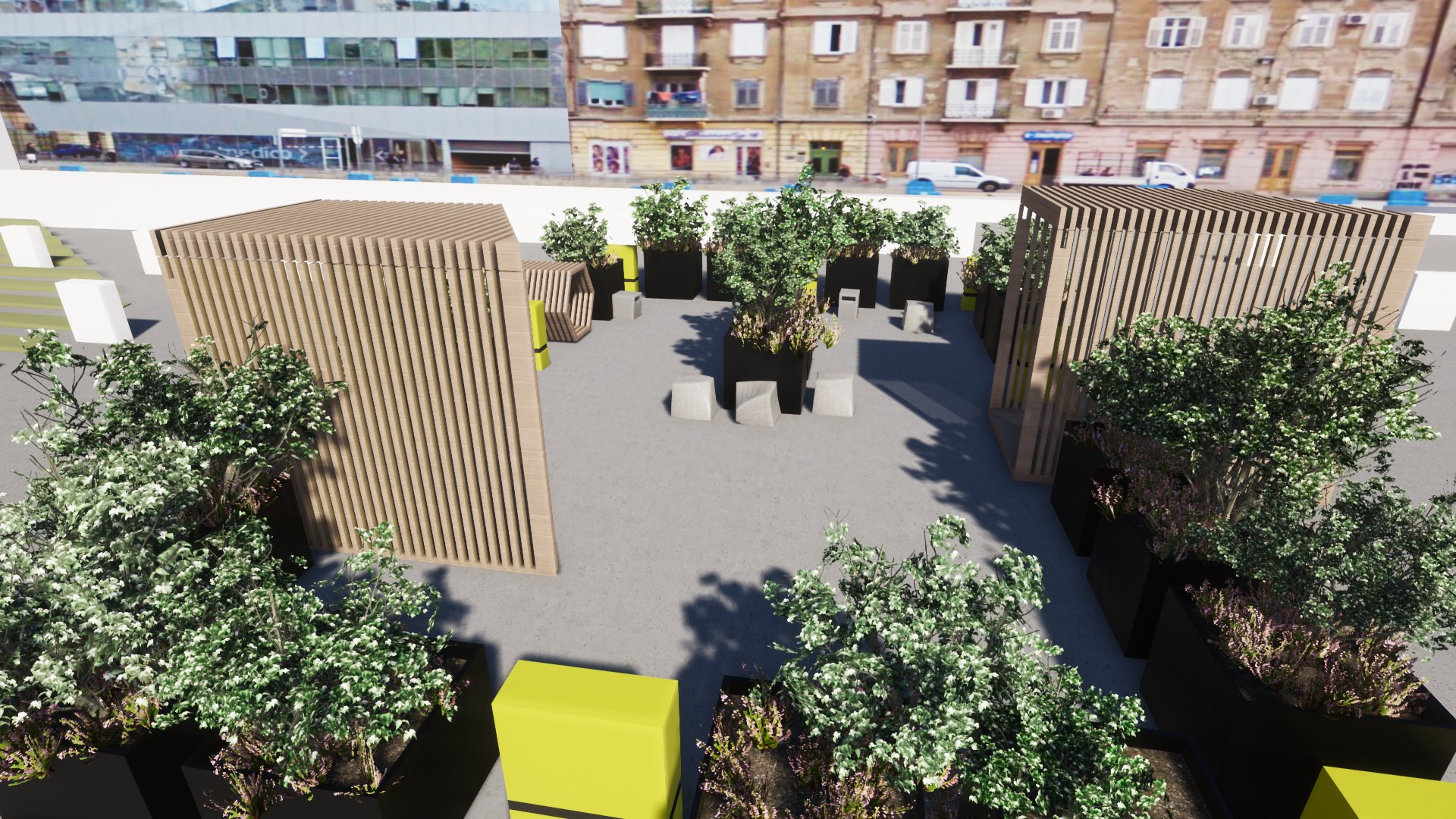
European authorities granted the European Capital of Culture status to Rijeka for extra months in order to allow them to complete some programs halted by the pandemic. Not that it much helped increase the footfall the vast project was meant to attract to the Kvarner capital's streets. Instead, the streets lay bereft of guests, visited only by Rijeka residents. But, that's not such a bad thing.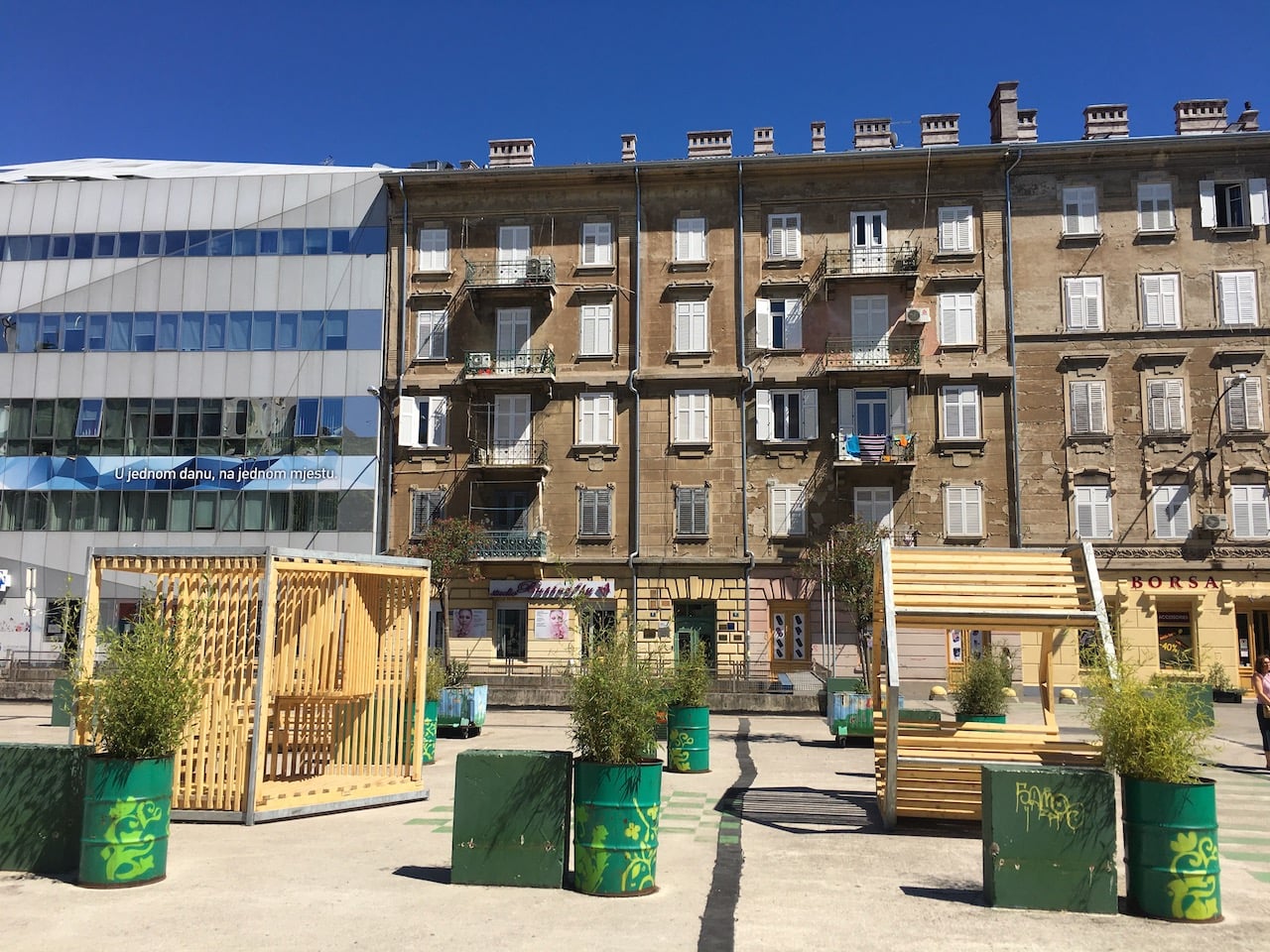
The Capital of Culture has never been awarded solely to help a city attract visitors. Nor is it ever intended to make its mark over just one year. A lasting legacy for the city's current and future residents is perhaps the most essential element of the event. And, though crippled by Corona, Rijeka European Capital of Culture 2020 is staying true to its promise to do so. New Rijeka urban parks and public recreation areas are just some of the benefits ECoC 2020 will leave behind.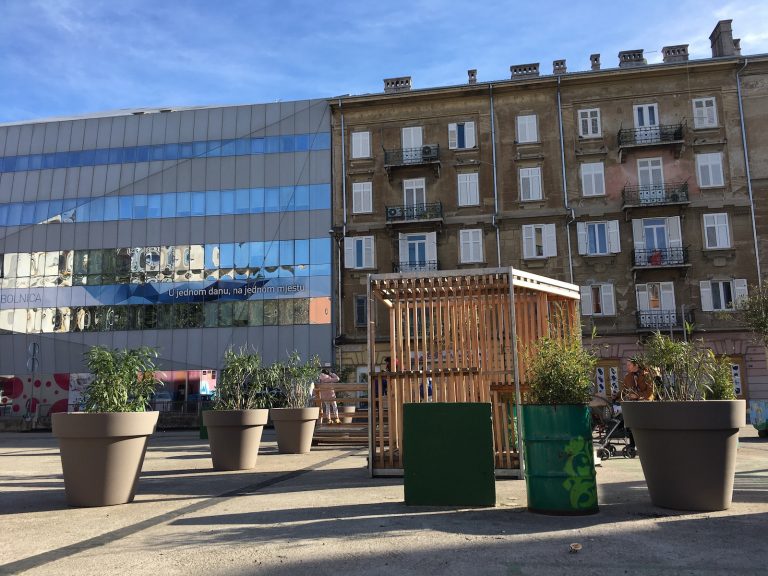
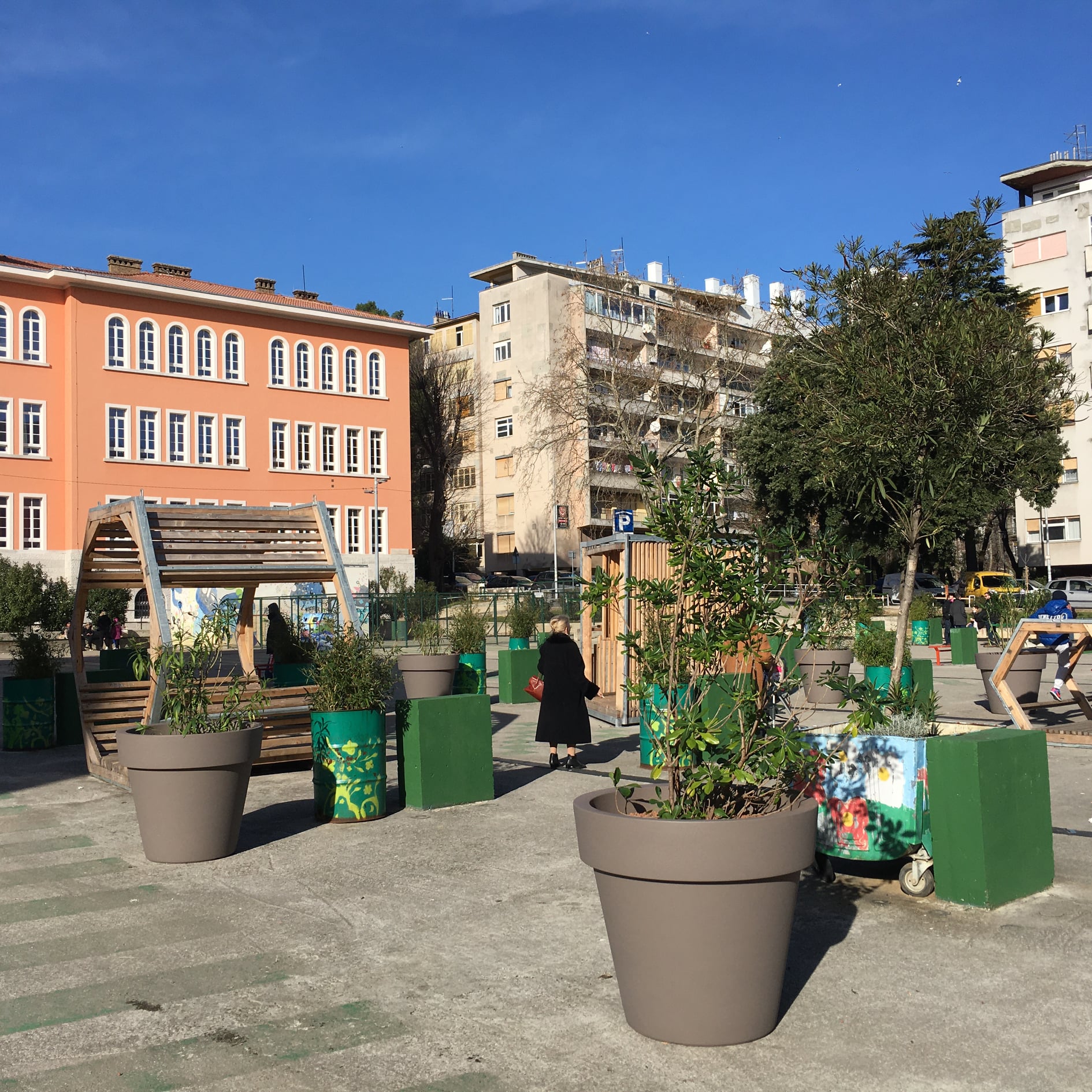
Rijeka is a great city. But, it's a weird place. An anomaly on the Croatian coast, it boasts none of the quaint olde worlde architecture you usually find around the Mediterranean, Croatia included. It's grand Austro-Hungarian facades and palaces are much more like the Croatian capital. Behind them the city rises sharply up into the foothills, modern residential blocks shooting skywards and peering over the centre below. As Rijeka has grown like moss up this hillside, little room has been left for greenery and areas of recreation. Goodness knows, the best spot you might find for a picnic in Rijeka is the cemetery! (Kozala – actually, as far as places full of dead people go, it's actually very nice)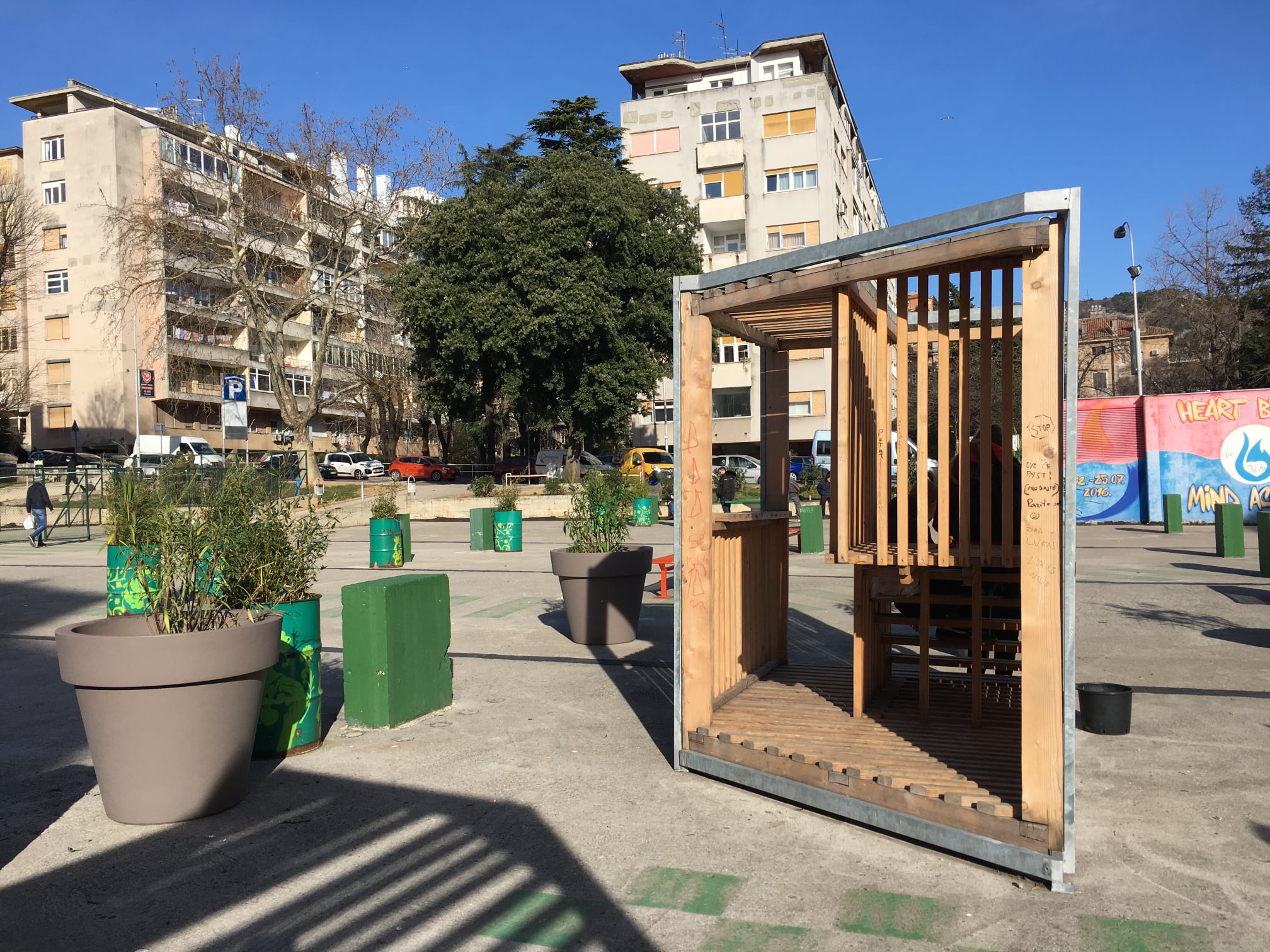
The new Rijeka urban parks try to address the imbalance of work to recreation space city residents have. While it may not be possible to create a vast landscape of lawns and a forest of trees in the city centre, the new Rijeka urban parks and public areas look to use modern solutions and the places they have, to create spaces where everyone can socialise, play, relax or meet up.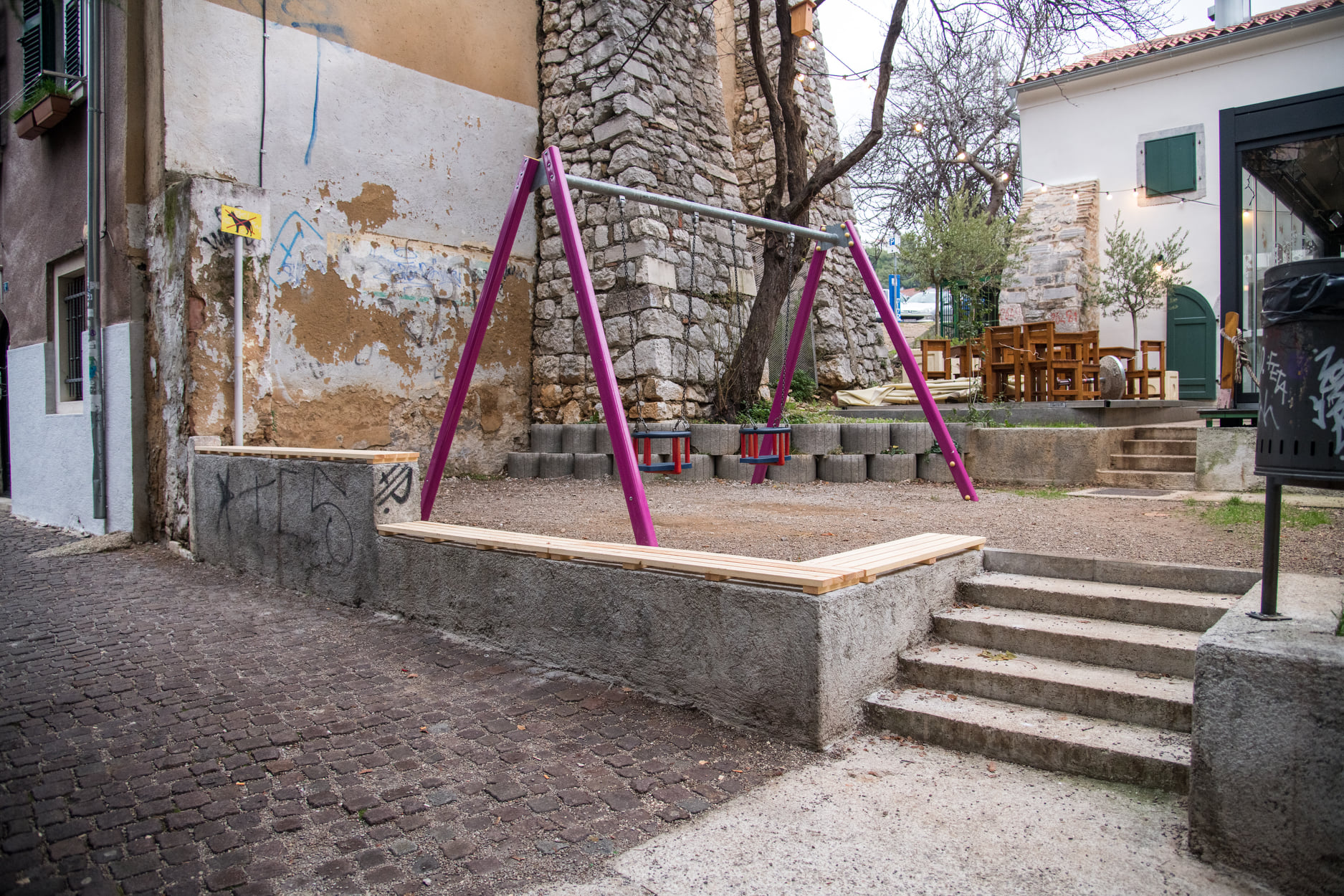
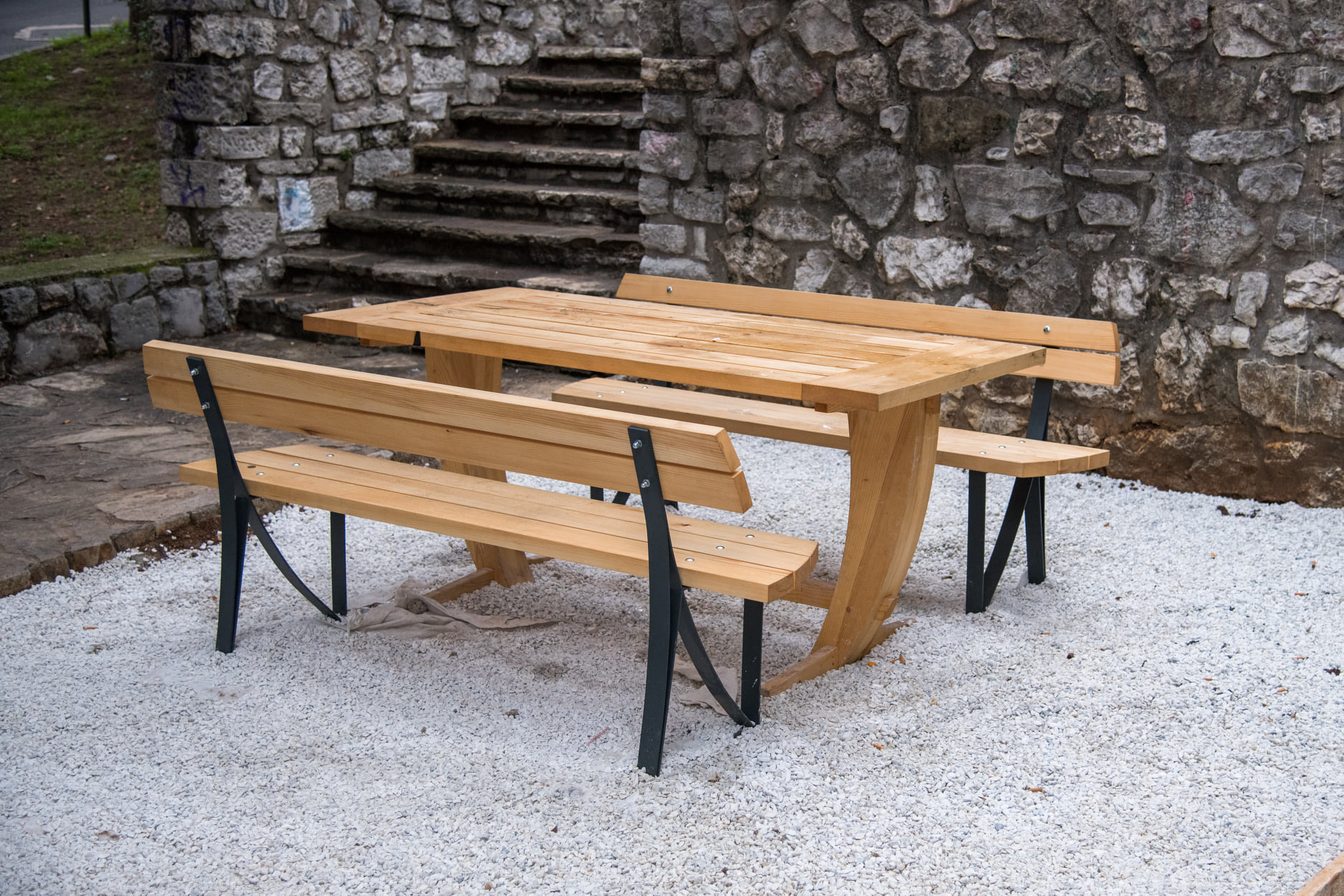
Under several different programs within European Capital of Culture 2020, members of the Association for the Promotion of the Quality of Urban Life 'Urbani separe' worked on the new Rijeka urban parks in July 2020 and again between December 2020 and January 2021. In a relatively short space of time, we think they've done a great job.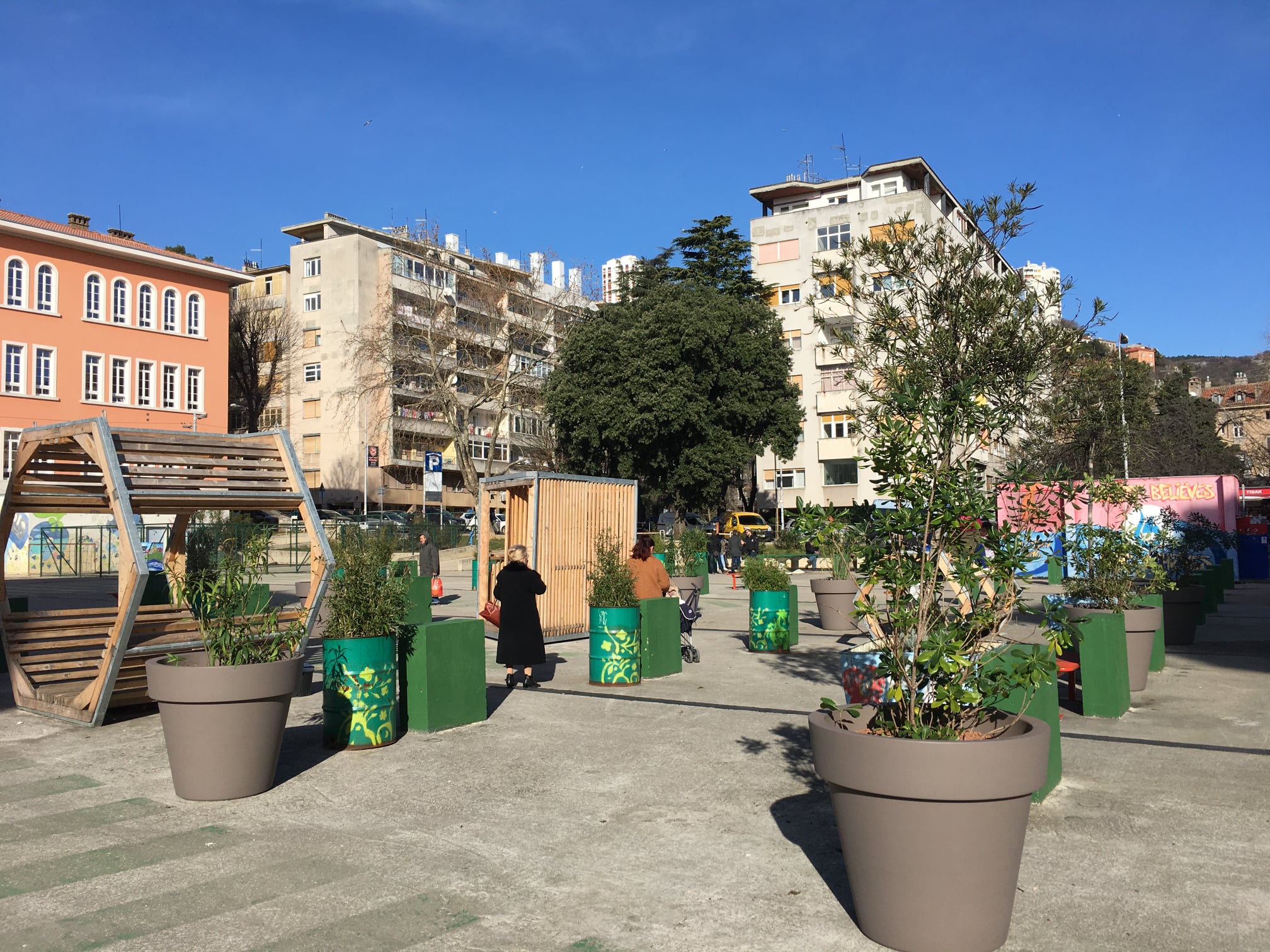
All images © Urbani separe / Rijeka 2020
Rijeka and Galway to Extend European Capital of Culture Titles until end of April 2021
December 27, 2020 - Rijeka and Galway were European Capitals of Culture in 2020, but the spread of COVID-19 hampered the implementation of their planned programs.
Fortunately, the European Parliament and the Council decided to amend Decision no. 445/2014/EU on establishing a Union initiative for European Capitals of Culture from 2020 to 2033.
This Decision enables the cities of Rijeka and Galway to extend the Capital of Culture title until the end of April 2021, while the upcoming Capitals of Culture will take over their confirmed titles from 2022.
This decision is of great importance for the current and future capitals of culture because the planned events due to the pandemic had to be canceled or postponed, and the organizers could not capitalize on the preparations made. With this extension, the capitals are being offered another chance to achieve their goals in a way that will be both health-safe and culturally enriching.
HRT reports that this is the first time in history that the ECOC project lasts longer than one calendar year, and the next ECOC titleholders will have to postpone their projects for a year.
Rijeka 2020 believes that the title extension certainly has a symbolic meaning, but even before the decision was made, they warned that it brings with it problems:
"First of all, there are problems with time because the extension is proposed until the end of April next year, and we know that the most interesting season for us starts from Easter. On the other hand, of course, this extension of the title does not come with additional funding," says Irena Kregar Šegota, director of Rijeka 2020.
Before the decision, Minister of Culture and Media Nina Obuljen Koržinek believed that Rijeka would not benefit greatly from the extension:
"In these circumstances, we kept a level of funding that was possible, of course not in full because the program was radically reduced, as well as the number of employees, but I think we managed to provide the funds needed for implementation," said Minister Obuljen Koržinek.
Director Kregar Šegota announced that she would prepare the program with what they have at their disposal:
"We will finish and conclude the program directions that we have implemented this year, we are thinking about some additional programs, and we must definitely prepare a program that will conclude the year, a kind of closing program," said Kregar Šegota.
Two excellent exhibitions can still be seen in Rijeka - the Balthazargrad exhibition at the Museum of Modern and Contemporary Art and the Fiume Fantastica exhibition at Export Drvo.
To read more about lifestyle in Croatia, follow TCN's dedicated page.
European Parliament Endorses Extending European Culture Capital Status
ZAGREB, Dec 18, 2020 - The European Parliament on Thursday endorsed a motion to extend the status of European Capital status for the period 2020-2023 which enables Rijeka to present all the programmes it had planned but was thwarted by the COVID-19 pandemic.
With 689 votes in favour MEPs adopted a report by Croatian MEP Zeljana Zovko (HDZ/EPP) to extend the status of European Capitals of Culture in the 2020-2023 period, which gives Rijeka and the Irish city of Galway the "green light" until April 2021 to present their programmes while the next capitals will be deferred from 2021 to 2022 and from 2022 to 2023.
Rijeka and Galway were the European Capitals of Culture for 2020 however the COVID-19 pandemic thwarted them from presenting their planned projects.
After the motion was upheld at a plenary of the parliament in Brussels the Council is expected to confirm the decision next week so that it can take effect before the end of the year.
Ahead of the plenary meeting, Zovko underlined that extending Rijeka's status "in this turbulent time of the pandemic, Rijeka will have another significant opportunity to show that the culture sector has adapted to new circumstances and that creative power during the corona crisis can show what is most important in the creative industry and cultural heritage in promoting European values."
European Capital of Culture: Public Panel Held on Fate of Rijeka 2020
April 25, 2020 - The public panel 'European Capital of Culture - what to do?' was held regarding the Rijeka 2020 program. The discussion took place on April 24 via online chat service Zoom.
T.portal reports that the discussion was organized by Sanja Bojanic, Natasa Antulov and Marin Lukanovic from the Academy of Applied Arts, University of Rijeka, with speakers including Emina Visnic, director of Rijeka 2020 and Rijeka Mayor Vojko Obersnel, who spoke about the coronavirus impact on the European Capital of Culture, but also on culture in general.
The panel started with a statement by moderator Natasa Anutnov that a temporary suspension of the program was announced on April 17, and that 59 employees of Rijeka 2020 were laid off, while it was announced that the program was being restructured. She also confirmed that they had contacted the Ministry of Culture about participating in the panel, but no one had replied.
She asked Rijeka 2020 director Emina Visnic about what has been happening in her organization over the past month.
“First of all, I want to send a clear message: the ECOC as a project has not stopped nor has any of us who run the project said anything otherwise. Why speculations saying the opposite came up and why obituaries were written is another question, and I am personally interested in finding that conclusion,” said Visnic, who presented a calendar of activities undertaken since the crisis began. The ECOC, she noted, is much broader than Rijeka 2020 and touches many program partners.
Following the announcement of the program postponement on March 12 because of the decision by the National Civil Protection Headquarters, a discussion was held with partners leading larger segments of the program. The ban was estimated to last longer than previously announced, but at the time, they still hoped that work could begin by June. At the time, everyone thought that the virus would pass, but only now its impact is fully seen, and Visnic believes that life would not just return to normal.
'We had been planning this program for two years, and then in just one month, we had to change the framework urgently. The final program cannot be discussed now. Everyone asks, 'How much to cut, how much money?' And today we do not have an answer to that question because the Ministry of Culture should answer our inquiries next week," said Visnic, adding that most programs are in principle a public gathering, which will not be possible until June - and maybe later.
She further outlined all the activities they had undertaken in Rijeka 2020, all the conversations they had, and the suggestions they made towards the founders of Rijeka 2020, like hibernating the company and terminating activities or reducing workload, which was accompanied by reducing the number of employees. In the second variant, because canceling the project was rejected, the procedure was offered in two phases: the first, which they passed and which meant the said cancellations, and the second, to resume at the latest in June and July, which offers two variants, one with more and one with fewer programs.
The document was sent to the Ministry of Culture and Primorje-Gorski Kotar County, and it is not a final but a starting document, said Višnić, who also commented on the criticism that Rijeka 2020 has been invisible in recent weeks. The truth is, she confessed, that they had not communicated for two weeks, which she said she would take responsibility for if necessary. She added that the final version of the program proposal was made without a partner, which was mentioned as one of the main issues.
Mayor Vojko Obersnel estimated that thirty million kuna would be needed for the "new" ECOC, but that no one knows how much will eventually be provided to continue the project.
Along with him were Snježana Prijić-Samaržija, Rector of the University of Rijeka, Davor Mišković, Head of the Drugo More Association, Program Operator Dopolavoro, and Damir Čargonja, representative of Novi turizam d.o.o. and organizer of the Privremene Autonomne Zone program.
The talk, broadcast by Radio Roza, was also attended by numerous cultural figures and other interlocutors, from Vitomira Loncar, Aljosa Puzar, Ksenija Zec, Goran Sergei Pristas, Marcello Mars, Zvonimir Peranic and Daniela Urem to Irena Kregar Šegota, and formally linked to by the ECOC project.
The rector of the University of Rijeka, Snjezana Prijic-Samarzija, said that at this moment we must 'be hyper-ambitious'.
“We must not show the slightest weakness here. We should use all our strength because this is symbolic, Rijeka must not give up! We will all be guilty and responsible if we fail to return the ECOC to the fullest extent possible now,” she said.
Davor Miskovic of Drugo More, in charge of implementing the Dopolavoro program direction, presented his view of the current situation with a concrete example, but also considered the situation from a broader perspective and artists in Croatia and abroad.
“We did some projects for two years, the artists worked on them, researched, produced... We just needed to finish them. In some ways, together with our partners, we have said that we will realize them anyway. In any format - they will happen. The problem is with big spectacles involving a lot of people, as this is still unknown, it depends on the mode of our future lifestyle. The problem is also with the artists who had to come from, say, America or Canada, as that fell through, and Dopolavoro narrowed down significantly,” Miskovic said, describing the current situation as a gigantic crisis in culture.
Marcell Mars, one of the researchers at the Center for Postdigital Cultures at Coventry University, who worked with his colleagues on the 'Piratska skrb' project for Rijeka 2020, agreed. Mars sees solidarity as the only path to a concrete solution.
“Solidarity is the key. It is a question of survival and we need to put it as a key focus. We need to build a story that will have its basis in solidarity,” he said.
The situation was also addressed by Sergei Pristas, playwright and full professor at the Academy of Dramatic Arts, University of Zagreb, and co-founder and member of BADco., a performing arts collective.
“Rijeka is currently at a crucial historical moment, at the moment of redefining what culture is in the context of this moment. The focus should be on culture, not repertoire,” he said.
Ksenija Zec, choreographer and author of dance and drama plays and a professor at the Academy of Dramatic Arts in Zagreb where she teaches Stage Movement, gave her opinion on the topic of digitizing culture, which is increasingly mentioned in public because of the new situation, and explained that it is not so simple for numerous reasons.
“Digital art is not just a recording of a theater play," she said, adding: “Everything we do at the moment is a pledge for the future. The criteria should not be reduced, but the formats should be reduced.”
The sharpest criticism of all that was said in the official part, before the discussion, was addressed by Vitomir Loncar, who warned that there could be no gathering still in September or October.
“There are no suggestions for online activities in all your plans, which means you are not seeing the times we are living in. The presentations show that you act as if you have a decades-worth of time, the future, and the situation is long gone,” Loncar said, while Puzar and Čargonja referred in particular to layoffs for employees in Rijeka 2020.
“I was shocked by the dismissal of the workers, and I signed the letter. But I am also shocked by the letter, it is written as it is written, not too much is being asked for, but it is a disappointment to those people who lost their jobs and rebelled,” said Čargonja, adding that some who were listed as the signatories did not actually sign the letter. To the mayor's remark that most of them responded, "I don't know, but the generation has rebelled and wants to exercise their rights. That always had to be ahead of the rest.”
You can listen to the full panel discussion here.
To read more about lifestyle in Croatia, follow TCN's dedicated page.
Kvarner and Rijeka ECC 2020 Presented at BIT Tourism Fair in Milan
ZAGREB, February 10, 2020 - The Croatian coastal region of Kvarner and Rijeka as the European Capital of Culture 2020 (ECC 2020) ware promoted at the BIT tourism fair in Milan on Monday, the Croatian National Tourism Board (HTZ) said in a press release.
HTZ is presenting its tourist trade at the fair from February 9 to 11. BIT is one of the most important tourism fairs in Italy and this year it is marking its 40th anniversary.
Italians account for the fifth most numerous tourists to Croatia and last year they generated a growth of about three percent in arrivals and nights, HTZ director Kristjan Staničić said adding that announcements of positive trends by key tour operators, airlines and ferry services give rise to hope about even better results this year.
Tourism Minister Gari Cappelli underscored that Croatia is one of the favourite destinations for Italian tourists and that Croatia enjoys the image of being safe and an environmentally preserved close destination with a wealthy offer of local wines and cuisine.
He added that Croatia's nautical and health tourism were particularly attractive for Italians.
More tourism news can be found in the travel section.
Opera Industriale Transforms Rijeka Port for European Capital of Culture Year
February 2, 2020 - Tens of thousands of people attended the central EcoC opening programme that communicated the courageous messages on the values upon which modern Europe is founded. On Saturday evening, the uncommon Opera Industriale transformed Rijeka Port into a huge stage, where there were thousands of performers accompanied by the sounds of work, industry and noise.
The Opera Industriale’s final song “O Bella Ciao” symbolically reminded Europe and Croatia of the freedom which the citizens of Europe have been enjoying for the last 75 years with words “È questo il fiore del partigiano, morto per la libertà! / This is a flower for the partisan, who died for the liberty”. Messages appearing on light installations were: RIJEKA LET'S GO; FORZA FIUME; PORT OF DIVERSITY; TOLERANCE; RESPECT; COEXISTENCE; PEACE, ANTIFASCISM; ART; EUROPE, CULTURE
“Through the programme in the port, in front of the eyes of Europe, Rijeka paid respect to its workers and its industrial heritage, its avant-garde art and the tradition of its surrounding region, at the same time reminding us of the core values the modern Europe was built on. Rijeka Port was chosen as the symbol of modern and open Rijeka, for which reason the motto of European Capital of Culture Rijeka is Port of Diversity. The uniqueness of this program was ensured by the huge audience which rang the cowbells, cheered, created noise and lights, and thus participated in performance both as a living instrument and as the very reason for the existence and realization of the European Capital of Culture,“ said Emina Višnić, Rijeka 2020 CEO immediately after the ending of Opera Industriale.
Opera Industriale is based on the musical framework designed by Rijeka art duo JMZM (Josip Maršić and Zoran Medved) and orchestrated by Croatian composer, maestro Frano Đurović. Besides them, this central opening programme in Rijeka Port featured numerous artists, including DB Indoš – House of Extreme Musical Theatre with Rumoristi, the mixed Choir of The Opening of European Capital of Culture which was lead by Jeka Primorja choir and fronted by Igor Vlajnić, and string and wind orchestra. The Finish Choir Mieskuoro Huutajat offered an especially attractive performance that included screaming, shouting and rattling. Opera Industriale also featured around twenty Rijeka guitarists, ten drummers, dancers and the workers’ orchestra of grinders, welders and sparks.
This urban Rijeka opera has brought forth a reminder of the rich and stormy Rijeka past, along with the messages of respect for the power of workers in the life of a modern city, the working people who proudly built Rijeka. In regard to the tackled themes, this performance also included a reference to Janko Polić Kamov, the greatest Rijeka writer and a predecessor of the European avant-garde, whose verses were recited in a very peculiar style. A Finnish choir of screaming men sang the hymns of all the states in which Rijeka existed during the past hundred years. During Opera’s grand finale, the famous song of Italian antifascists “O Bella Ciao” was jointly sang by all the performers: rock guitarists, drummers, The Choir of The ECoC Opening, orchestra, Finnish Choir Huutajat and DB Indoš along with a large part of audience. Through the messages that pervaded this programme, Rijeka clearly demonstrated the values it cultivates and represents, the messages it wishes to send to both Europe and the world. Programme’s narrator was Zoran Prodanović Prlja, a well known Croatian rock frontman. The spectacle was rounded with spectacular fireworks.
Rijeka has been having fun from the early mourning hours
Following Opera Industriale, entertainment and fun will continue to the early morning hours, in Rijeka’s cafes and clubs, its streets and squares.
Welcome to Rijeka, the European Capital of Culture, one of the most interesting European cities this year.
This is a message from Rijeka!
To read more about lifestyle in Croatia, follow TCN's dedicated page.
Rijeka, Galway Hold European Capital of Culture 2020 Title
ZAGREB, January 4, 2020 - As of January 1, Rijeka, Croatia and Galway, Ireland hold the prestigious European Capital of Culture title.
"Thanks to their title of European Capital of Culture, Rijeka and Galway will be harnessing the full potential of culture to enrich our life experience and to bring our communities closer together", Vice-President for Promoting our European Way of Life Margaritis Schinas has said.
"Promoting culture as a core element of our way of life has many positive impacts on society, in terms of social inclusion, integration and economic growth. It enables people to gain new experiences, skills and opportunities to participate in society and to make our societies fairer and more inclusive," he added.
"A successful Capital of Culture is inclusive and meaningful to its citizens. It is also open to the world, illustrating our Union's willingness to promote culture as a driver for peace and mutual understanding worldwide whilst bringing long-lasting socio-economic benefits to its region," Innovation, Research, Culture, Education and Youth Commissioner Mariya Gabriel has said.
Rijeka is the first Croatian city to be awarded the European Capital of Culture title.
The "Port of Diversity" cultural programme presents Rijeka and its specificities while at the same time focusing on current European cultural-social issues.
Three themes have been chosen as symbols of the merging of Rijeka's identity and contemporary Europe: water, work and migrations. They are reflected in exhibitions, shows, operas, conferences, concerts, festivals, guest-appearances by international and Croatian artists, projects by local organisations, interior design, sculpture, book launches, and encounters between the people of Rijeka, the region, Croatia and Europe.
This year Rijeka will host nearly 300 cultural programmes with more than 600 events. Over 300 partner organisations from 55 countries from around the world are involved in the organisation of the programmes.
More Rijeka news can be found in the Lifestyle news.
Over 600 Events to Take Place in Rijeka in 2020 as European Capital of Culture
ZAGREB, October 31, 2019 - The programme for the "Rijeka - European Capital of Culture 2020" project was presented in that Croatian seaport on Wednesday evening, and next year, there will be over 600 cultural events including concerts exhibitions, plays and other activities and 250 artistic projects in that Adriatic city, which is one of the two European capital cities next year.
The official start of the programme that is being held under the slogan "The Port of Diversity" is on 1 February to coincide with the Rijeka Carnival.
Some of the exhibitions will include an exhibition of the works by Gustav Klimt and an exhibition on Rijeka's past.
Opera stars Karita Mattila and Elina Garanča will also give concerts in Rijeka.
Mayor Vojko Obersnel said that Rijeka would present itself in the best light, describing Rijeka as a city open to everybody.
The European Capital of Culture is an initiative designed to highlight the richness and diversity of the artistic development of European cities as well as the common cultural features as a way of contributing to bringing European nations closer and enhancing their mutual understanding. Every year a city in two EU countries each is designated the European Capital of Culture and in 2020, along with Rijeka, the title is also be awarded to Galway, Ireland.
More Rijeka news can be found in the Lifestyle section.
Rijeka "I Miss You": Latest Promo Video for 2020 European Capital of Culture
September 27, 2019 - Rijeka will be crowned as the European Capital of Culture next year.
Novi List reports that Tourism Minister Gari Cappelli met with Mayor Vojko Obersnel in Rijeka on Thursday and said that the preparations for the European Capital of Culture are examples of good cooperation between the City, Primorje-Gorski Kotar County, and the Croatian government, regardless of party affiliation.
Vojko Obersnel said that they also spoke about the good tourist results in Rijeka in the last six to seven years, in which the number of overnight stays has increased by about 20 percent a year, and the accommodation capacity and number of cruise ships are increasing.
Regarding the Rijeka 2020 Program - European Capital of Culture, it was assessed that the Government financially monitors the program and is proud of how far it has come. All agreements made at the first meeting were realized in the ministries of culture and tourism, and we expect that cooperation in 2020, Obersnel added.
Minister Cappelli pointed out that the ministries of culture and tourism have invested about 30 million kuna in the Rijeka 2020 project so far, and about 10 million euro is planned.
“We are pleased that everything is going according to plan so far,” Cappelli said. He announced that around four million visitors are expected in Rijeka in 2020, who will be able to follow more than 1000 events. Given that Croatia will chair the Council of Europe in the first six months of 2020, Rijeka, as the European Capital of Culture, will be an outlet for those coming to Zagreb for the events related to that presidency, the tourism minister said.
After the meeting, a new promotional video for the city premiered at the Art Cinema.
Check out Rijeka “I Miss You” below.
To learn more about what can be expected next year, here's a taste of the 2020 Europan Capital of Culture program.
To read more about travel in Croatia, follow TCN’s dedicated page.


